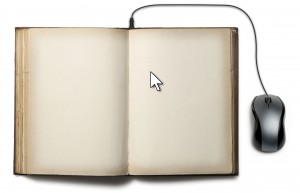 Call for Chapters
Call for Chapters
(Proposals due June 1, 2013)
Representations of Women’s Intellect in Film and Television
Scarecrow Press
(History and Film book Series)
Since the Second Wave Feminist Movement during the 1970s, Hollywood has
slowly begun to give prominent and leading roles to women. However, the
intellectual representations of women are out of line with reality, in many
cases failing to reflect the successes and struggles that women have faced
in a resistant social and political environment. This book considers the
portrayals of traditional myths about women’s intellect across film
history, as well as new myths and/or myth-busters that may have arisen
since the Second Wave.
When women are given space as “smart” in the media, they often find
themselves simultaneously undermined by stigmatizing qualities; finding it
difficult to gain and maintain a romantic connection, for example, or
watching her less intelligent friend/sister/colleague get all of the
attentions of others. Some smart women are coded as nerds, and in many
other cases, intellect is conflated with madness, monstrosity, or
witchcraft, harkening back to the healer and the hag.
In what ways does Hollywood control expectations about the brains of women
by foiling their intellect with their own bodies? How are smart women cast
as threats to the social order? What do we make of cinematic strategies
that cast women as the counter-intellectual to men of superior intellect?
And what of those whom we don’t allow to display any characteristics of
the intellectual at all?
Women earn 77 percent of the salaries of all American men—and that is not
because fewer women than men are working. The reality of the American
workforce is that women cluster in poorly paid occupations. This stems from
the pervasive cultural maintenance of male privilege, something that is
still communicated to girls and young women through peer groups, the media,
and even the historical structure of education that educated women
differently than men.
Contemporary media exploits this hypocrisy. More women go to college, but
they end up in overwhelmingly lower-paid jobs. Women who choose more elite
career paths in medicine, science, or crime fighting are made less
threatening by an over-accentuation of their “womanliness,” thus
exceptionalizing their intellectual position. If she is attractive, the
viewer can ignore her brain in favor of gazing at her body; if she is
average looking, or nerdy, viewers are offered ways to desexualize her in
order to accept her as an intellectual.
This Call for Chapters looks for scholarship that focuses on women’s brainy
roles in film and television since WWII. Questions for consideration may
include, but are not limited to:
· In what ways are women in film imprisoned by their intelligence?
· In what way are women ostracized for it?
· Are there cases in which women in film are set free, or live better,
as a result of intellectual growth?
· How do female roles in film reinforce standards of beauty,
submissiveness, and silence, over intellect, problem solving, or leadership?
· In what ways are smart women infantilized, or commodified, by their
intelligence in film (i.e.: chicks, babes, and honeys who are, despite
their appearance or place in society, intelligent)?
· How does an actress’s personal standards of intellect in her real
life affect the way she is given roles, or seen on screen?
· Are there successes (i.e. women in film and television who are
intelligent without also being objectified or villified)
2-5 page chapter proposals should be e-mailed to the book editor, Laura
Mattoon D’Amore: ldamore@rwu.edu<mailto:ldamore@rwu.edu>. Please include a
CV or brief biography with your proposal. The deadline for proposals is
June 1, 2013. Contributors will be notified by June 30, 2013. Final
drafts (5,000-7,000 words) will be due to the book editor by October 15,
2013.
Laura Mattoon D’Amore, Ph.D.
Assistant Professor of American Studies
Roger Williams University
One Old Ferry Road
Bristol, RI 02809
401-254-3171
ldamore@rwu.edu
 Lilith: A Feminist History Journal – Call for Papers
Lilith: A Feminist History Journal – Call for Papers




